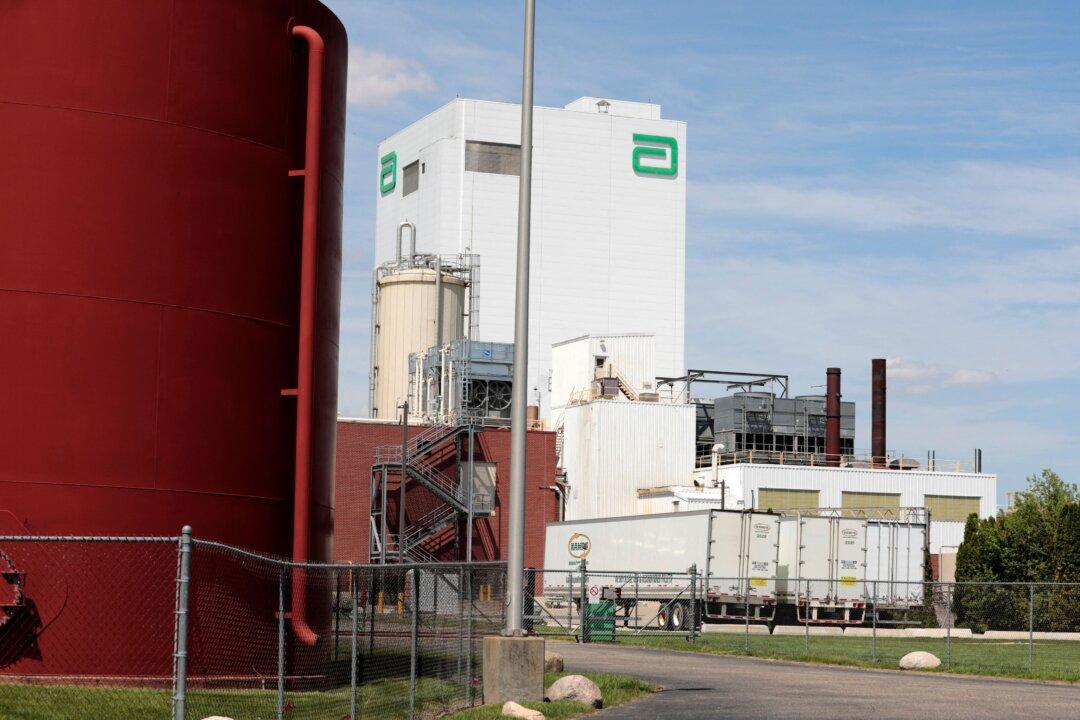Abbott Laboratories has flown millions of baby formula cans to the United States to help deal with shortages, the company said on May 13.
“We know that the recall has worsened the industry-wide infant formula shortage, and we have been working to get as much product into the hands of parents as we can,” a spokesperson said in a statement.





